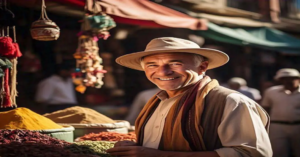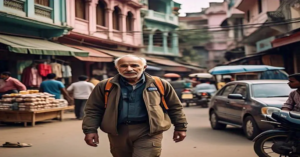Does Yvon Chouinard still own Patagonia ?
Yvon Chouinard of Patagonia on Profits With a Purpose

Redefining Capitalism: How a Cannibal Capitalist Climbed to the Top of the Business World
Yvon Chouinard is not your typical capitalist. The fact that Chouinard is the founder of Patagonia — one of the most widely admired companies in the world, due not only to its excellent outdoor clothing, but also to the ethical compass of the man at its helm — is also kind of a party trick of its own, because he has torn up all the old presumptions about how our economy might work best. He didn’t go into business to make money — he went in to solve problems. The project to create lasting climbing equipment gave way to a pioneering blueprint of how ethical entrepreneurship can thrive.
From Dirtbag Climber to Entrepreneurial Reluctant
In the days before Patagonia became a billion-dollar brand, Chouinard was a blacksmith and a serious rock climber. Back in the 1950s and ’60s, he made his own climbing gear out of necessity. His wares, first peddled out of the boot of his car, were soon well known for their quality and innovation. But success brought dilemmas. The more gear he sold, the more environmental impact he saw. This paradox planted the seeds for a business model that would combine purpose with profits in the future.
The Creation of Patagonia and a Mission-Driven Ethos
Founded in 1973, Patagonia wasn’t designed to maximize profit or to fuel growth. From its earliest days, the company planted a seed of environmental stewardship in its DNA. Chouinard’s philosophy was basic: make quality gear while doing as little as possible harm to the planet.
Just Do It: An environmental activist’s dream fulfilled
Patagonia is one that has put its money where its mouth is when it comes to activism. In 1986, the company pledged to donate 10 percent of its profits to environmental causes — a commitment that has since evolved to 1 percent of sales or 10 percent of profits, whichever is greater. They have also embarked on some bold campaigns like “Don’t Buy This Jacket,” which encouraged consumers to think twice about consumption and repairing as opposed to replacing.
The Common Threads Initiative and Its Consequences
The Common Threads initiative, established in 2011, was a direct provocation to the profligate standards of the fashion industry. The programme encouraged costumers to minimize, mend, reuse and recycle what they wear. And Patagonia went so far as to provide repair services, thanks to the nation’s largest garment repair facility.
Advocating for Public Lands and Policy Change
In 2017, Patagonia took the Trump administration to court over the shrinking of Bears Ears and Grand Staircase-Escalante National Monuments. It was a radical move for a corporation, and the company established itself as a major political player.
Yvon Chouinard B Corp and Beyond

Patagonia has been a certified B Corporation since 2011, which means meeting a series of rigorous standards for social and environmental performance, accountability and transparency. But Chouinard didn’t leave it there. Two years ago, Patagonia altered its mission statement to: “We’re in business to save our home planet.”
Yvon Chouinard Global Tax: The campaign for the world levy
In 2022, Chouinard made a radical move — he gave the company away. Instead of selling or taking it public, he gave ownership to a trust and a nonprofit that would benefit the fight against climate change. All profits after being reinvested back into the business would be channeled into environmental causes. The change made headlines worldwide, and established a new standard of legacy history leadership.
The Holdfast Collective and Patagonia Purpose Fund
The nonprofit Holdfast Collective, which gets 98% of Patagonia’s nonvoting shares of stock, channels its profits to fighting environmental crises. The Patagonia Purpose Trust that holds the voting stock keeps the company on mission. This exclusive ownership model ensures that Patagonia’s perpetual mission will survive long beyond Chouinard’s time.
Culture of Integrity: Yvon Chouinard
We believe in a culture of integrity and transparency, and it’s one that our employees embrace, one that places their interests first, and the planet’s above all.
Its own culture is an echo of its public posture. On-site child care and paid time for environmental internships make the jobs family friendly, as do flexible schedules for outdoor pursuits. It is one of the highest rates of retention in an industry dogged by turnover.
Yvon Chouinard Leadership and the Sustainability of Values
Chouinard, then, hand-selected leaders that shared his vision and experienced business continuity without sacrificing its ideals. CEO Ryan Gellert also remains committed to transparency, sustainability, and advocacy thus keeping Patagonia at the forefront of companies taking a stand on the right side of history.
Radical Transparency and the Moral Supply Chain
Patagonia publishes extensive reports on its supply chain, sharing both successes and challenges. This level of transparency creates trust and incentivizes the industry to better itself. (They were also among the first to deploy recycled polyester and organic cotton at scale.)
The Ripple Effect: Yvon Chouinard
The influence of Patagonia goes beyond retail. The brand has also motivated a new wave of entrepreneurs who value purpose regarding profit. From Allbirds to TOMS, start-ups today consider social impact a necessity, not a luxury.
Venture Capital with a Conscience: Yvon Chouinard
Venture Capital with a Conscience: Tin Shed Ventures Written by Morgan Tilton What if eco-minded investors used their financial portfolios as philanthropic opportunities?
Patagonia’s venture fund, Tin Shed Ventures, invests in startups solving environmental problems. It’s another way the company scales its mission, supporting innovations in agriculture, materials science, and renewable energy.
Yvon Chouinard: the Circular Economy
Patagonia, with its Worn Wear program, is an advocate for reuse and circularity. The initiative purchases used gear, refurbishes it then returns it to the market at lower prices, in turn extending the life cycle of the products and minimizing waste.
Legacy of a Trailblazer:Yvon Chouinard Enduring Influence
The long-term impact of Chouinard isn’t his wealth; it’s his willingness to give it away. In this era of billionaires pursuing moonshots and market monopolies, his actions are a reminder that business can — and should — serve a higher purpose.
The Man Who Gave It All Away
Chouinard never wanted to be a business executive. But his refusal to compromise also made him an extremist. By becoming Patagonia, he secured that its mission would outlast its profits — and maybe even its founder.
Yvon Chouinard: Purpose as the New Bottom Line
Business of the future, according to Chouinard, is not in quarterly gains but in long range stewardship. His model calls for a second look at capitalism itself — one in which purpose, planet and people precede profits.
Closing Thoughts: The Yeti Up The Mountain
The story of Patagonia is not over. Climate change is still an existential threat, and the corporate world has a lot to learn. Chouinard’s own trajectory is proof that businesses can boom not despite their values but because of them. The summit of truly sustainable capitalism still lies ahead — but Patagonia is already pounding up the trail.
Leave a Reply
Want to join the discussion?Feel free to contribute!